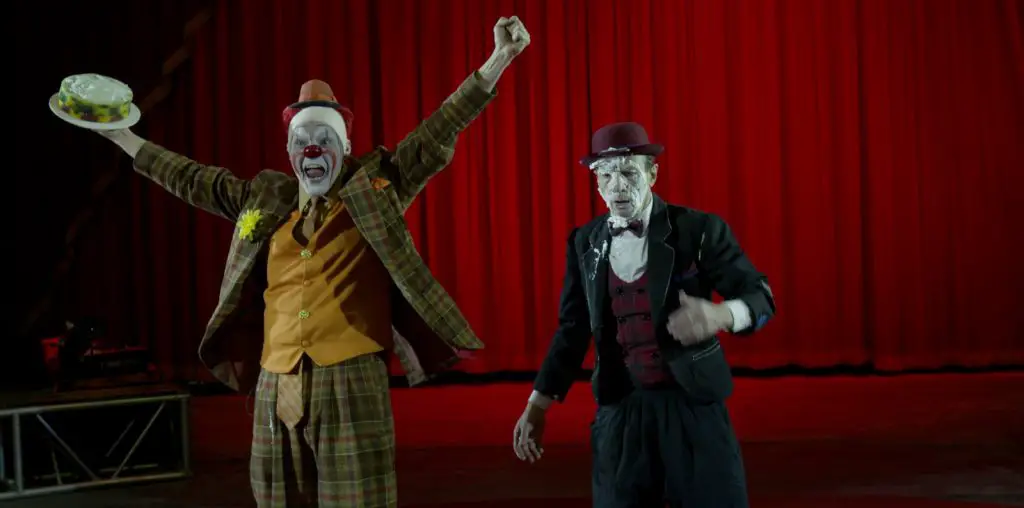
Who’s had a career like John Waters? If the name Film Threat ever applied to anyone, it’s Baltimore’s favorite anarchist. “Pink Flamingos” and “Desperate Living” are masterpieces. You can only keep at that kind of guerilla filmmaking for so long, though, before you get tired of making movies for no money. Waters’ transition film was “Polyester”. With some real money and some professional actors, the director began to explore the kitsch of his childhood and his inner Douglas Sirk.
In the intervening years (which have lasted longer than his time in the underground) Waters has watched as Hollywood ransacked his early films and stole both his old shock value and his satire. Films like “There’s Something About Mary” and “South Park” owe a huge debt. Still, other than a massive talent for making movies, what is the one thing Waters is left with to really separate himself from the crowd? His anger.
As he once liberated story elements from the Manson killings for “Female Trouble,” the director has now appropriated the story of the kidnapping of Patty Hearst for his new film, “Cecil B. Demented”. You would presume that Hearst doesn’t care as she’s cast in the film. The film relates the misadventures of the bitchy, aging starlet Honey Whitlock (Melanie Griffith). Upon attending the benefit premiere of her latest crappy studio prestige film in Baltimore, she’s promptly kidnapped by a band of filmmaking terrorist called the Sprocket Holes to star in their underground movie. As Honey learns the tenets of guerilla filmmaking the hard way from the group’s charismatic but deranged leader, Cecil (Stephen Dorff), she eventually comes to agree with their beliefs about the evils of Hollywood. Fire, death, Forrest Gump, a downer ending and hilarity all ensue.
Waters is not subtle about the message he’s trying to get across, and he doesn’t really sugarcoat the characters, either. The Sprocket Holes seem largely based on the director’s troupe of actors from the old days (many now dead), the “Dreamlanders”. Salon.com refers to them as “The Royal Shakespeare Company of Raunch”. I’ll just call them the “Mercury Theatre of Mayhem”. In the film they are still presented as actual terrorists with real guns that cause real deaths. They are lovingly portrayed as a crew of outcasts and f**k-ups by an eager cast of young actors. The standouts include Dorff, Alicia Witt as former porn star Cherish, and Adrian Grenier as gleeful drug addict Lyle (is it me, or did they clone Benicio Del Toro?) The cast performs all of its old-school rudeness in service of its purpose: to expose the crimes that Hollywood has committed against audiences and independent cinema.
This is nothing new. The industry has been doing the same s**t for decades. Before Jerry Bruckheimer there was Irwin Allen. Before him there was someone else making big budget, big star, small mental-impact event flicks. In the over-hallowed days of the 1970’s, for every “Taxi Driver” there were at least four “Airport” movies. You may not even see the problem if you’re not exposed to older or newer films (largely foreign) that are made completely outside the system. These films were made by people such as Rainer Werner Fassbinder and Akira Kurosawa. Just check the filmographies of any director whose name is tattooed on one of the Sprocket Holes. Wanna reboot your brain? Go find something like Gaspar Noe’s “I Stand Alone” or Masaru Onuma’s “Wife to Be Sacrificed”. These messages from alternative universes will demonstrate how powerful the cinema can really be. At art form needs to grow to stay alive. The tyranny of content and structure imposed upon most American movies is inducing a deadly sleep upon audiences. Why did “The Blair Witch Project” make so much money? The public actually wanted something different.
Today, indie film in this country is largely a joke. Miramax, October Films, and Waters’ former patron New Line Cinema all now have larger corporate parents. Nearly every major studio now has its own “indie” boutique label. On at least two occasions, with “Kids” and “Dogma,” Miramax has given up distribution of films as to not upset their owner, Walt Disney. New Line delayed the opening of David Cronenberg’s “Crash” by several months due to the ire of then owner Ted Turner. Waters had been trying to get “Cecil B. Demented” produced since before his last film, “P****r”. Despite a long relationship with New Line Cinema, the director could not get his new film produced until now.
Thankfully, newer distributors are popping up to fill the void. Would we have seen “Gods and Monsters” or “Affliction” on the big screen without Lion’s Gate? Would we have seen “Croupier” without the Shooting Gallery? “Happiness” without Good Machine? “Love is the Devil” without Strand Releasing? There are others to thank but currently first among them is the excellent, and quite independent Artisan Entertainment. “The Blair Witch Project” bought them a great deal of financial breathing space. They’ve paid America back for the pleasure in the last year by releasing “Felicia’s Journey,” “Ghost Dog: The Way of the Samurai,” “Buena Vista Social Club,” “Chuck and Buck,” “The Limey,” and the subject of this review, “Cecil B. Demented”. How many other distributors have ever released that many good films in one year in the last 40 years?
A film this angry and militant is obviously not for everyone. I’m sure many, many people are quite happy to be cocooned in their cookie-cutter multiplexes watching their Simon West and Michæl Bay movies. Art is, of course, always a subjective experience. How you feel about this film may largely depend on whether you care about the issues addressed. If you want to know whether or not you should go see “Cecil B. Demented”, there is just one thing you should consider: if you are not whom this film is for, then you are whom this film is about.
Read FILM THREAT’s exclusive interview with the director right now! Click on over to JOHN WATERS: CINEMA TERRORIST>>>
